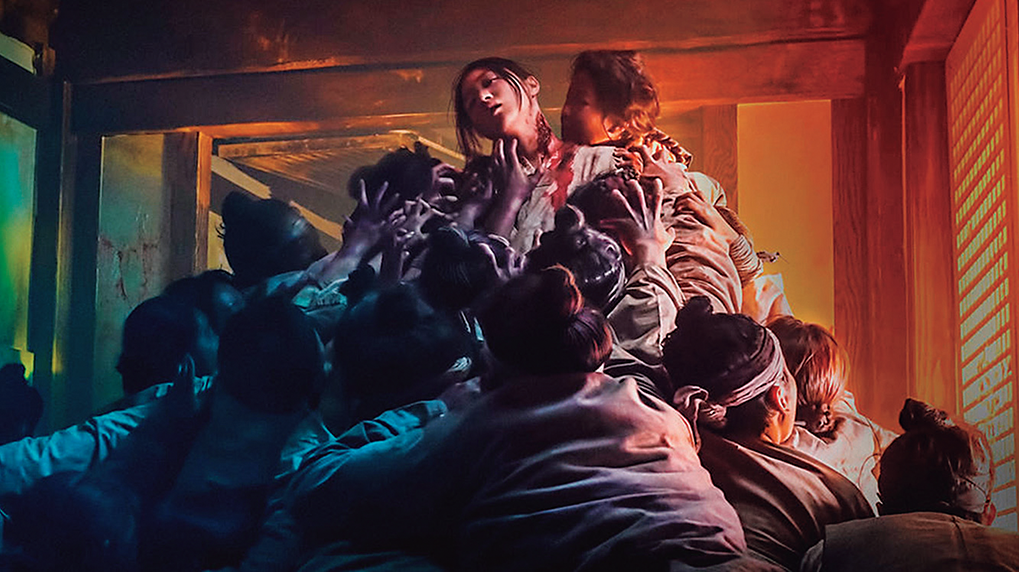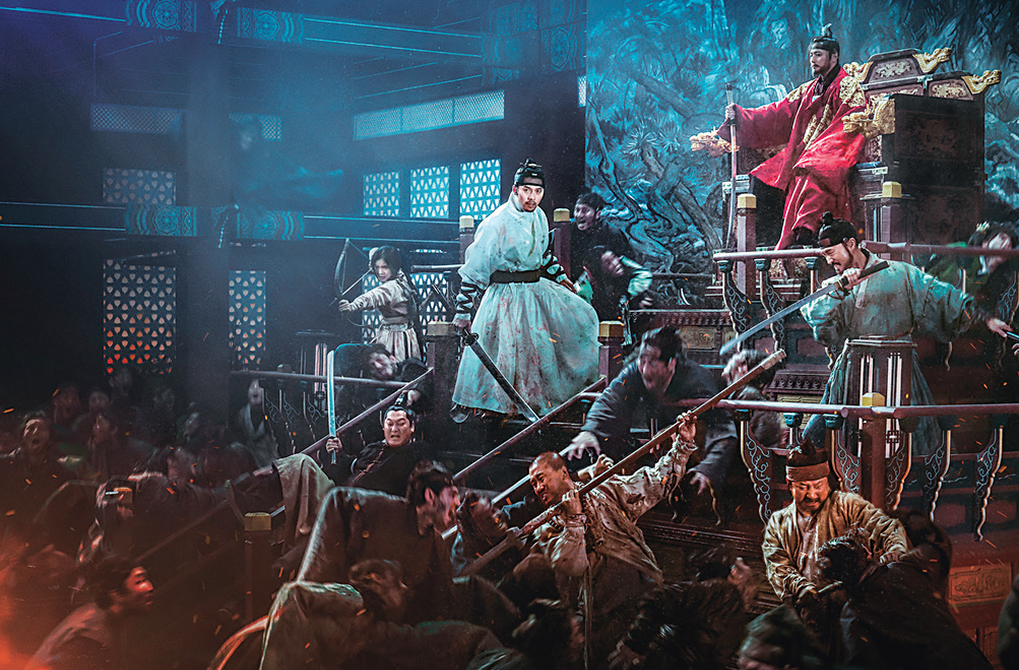Korean movie and TV series producers are increasingly drawn to zombie scripts. It is too early to categorize zombie flicks as a standalone genre in Korean film. But foreign producers are noticing the unconventional manner zombies are depicted on Korean screens.
Until recently, Korean movie buffs rated zombie films as B-grade entertainment. A case in point is “I Am Legend,” a 2007 U.S. post-apocalyptic horror film; it only sold 2.64 million tickets in Korea, far fewer than in most other countries. With 5.3 million viewers, the 2013 zombie blockbuster “World War Z” fared much better, but it was still a far cry from a box office hit. Neither the movies’ themes nor their respective lead actors, Hollywood A-list stars Will Smith and Brad Pitt, were enough to attract large audiences.
Then, in 2016, “Train to Busan” arrived, and within a few hours, it transformed Koreans’ attitude toward zombie movies. The film eventually sold 11.6 million tickets, making it the 15th most popular film in Korean history, and blazed across Asian theaters. The movie, now regarded as the genesis of Korean zombies, also became popular on Netflix, the worldwide video streaming service, and following a bidding war among Hollywood studios for the film rights, an American remake is in the pipeline.

“Kingdom,” a South Korean TV series that premiered on Netflix in January 2019, garnered more popularity abroad than in the domestic market. Overseas fans seem to have been intrigued by the scenic beauty of Joseon, its palaces and fortresses in the background. © Netflix
Different Interpretation
In “Train to Busan,” an infected passenger spreads a zombie virus, turning the train into a scene of gory mayhem. The survivors are trapped until they reach Busan, Korea’s second most populous city and the only place not infected by the virus. The movie evoked memories of “The Host,” a 2006 sci-fi monster thriller which briefly held the all-time box office crown, and two movies about runaway epidemics, “Deranged” (2012) and “The Flu” (2013). In all three films, authorities are slow to react competently and ordinary people must take control themselves.
What made “Train to Busan” a smash hit was the way it presents zombies, portraying them somewhat as pitiful beings. In the beginning, they appear to be mindless cannibals, but the movie attempts to elicit empathy for the passengers-turned-zombies as innocent victims of incompetent leaders. Among some viewers, the zombies might even arouse sympathy. This is what makes those zombies special and uniquely Korean.
The movie contains abundant references to Korea’s modern history. The setting is a high-speed train rushing through the countryside and stopping at stations between Seoul and Busan where people are already infected, a metaphor for the nation’s reckless race toward industrialization. The passengers are a microcosm of Korean society and a reminder of group actions, or crowd culture, represented by civilian protestors massing against military dictators and their storm troopers.
Foreign movie studios have also tried to put a new wrinkle on zombie scripts. For example, R, the zombie protagonist in “Warm Bodies” (2013), tries his best to protect a beautiful girl from other zombies. This new perspective represents a departure from the standard narrative of zombie films that has largely remained unchanged since George A. Romero’s “Night of the Living Dead” (1968).
Another reinterpretation, the 2018 Korean period action movie “Rampant,” followed a few seasons after the spectacular summer blockbuster run of “Train to Busan.” In “Rampant,” set in the Joseon Dynasty, zombies deboard a docked foreign ship and find their way into the royal palace. Before long, zombies wearing hanbok, the traditional Korean attire, appear everywhere. The ineffective king fails to respond to their invasion but his youngest son uses his fantastic martial art skills to repel the zombies and defeat officials plotting to overthrow the king.
What is eye-catching here is the contrast between the people-turned-zombies and the ruling class. The movie delivers the message that what threatens the dynasty is not the chaos caused by the hungry intruders, but the greed of its own ruling elite.

“Rampant,” which opened in Korean theaters in October 2018, ushered in a new genre of Korean zombie films by adding s of a historical period drama. However, it was far from a box office hit and did not receive any credit for its groundbreaking storyline. © Next Entertainment World
Zombies in Historic Setting
Another period offering, “Kingdom,” written by Kim Eun-hee and released on Netflix in January 2019, also depicts zombies as hungry people. Last November, the first two episodes of the TV series were shown at Netflix’s content showcase, “See What’s Next: Asia,” in Singapore. Pre-release screenings elicited favorable reviews from the media, and Netflix announced a second season even before releasing the first one.
The reason Netflix decided to invest in “Kingdom” is probably because its fusion melds well with the company’s strategy. Netflix approaches the audience with universal themes spiced up with a regional or national touch. That is why the streaming giant is keen on “Kingdom” it belongs to the zombie genre that people around the world can relate to and at the same time offers Korea’s unique interpretation and sentiments regarding its undead heroes. This approach may present a viable solution to Korean writers and producers wondering how they can enter the global content market.
Jung Duk-hyunPopular Culture Critic